- Home
- William Bell
Five Days of the Ghost
Five Days of the Ghost Read online
Five Days
of the
Ghost
WILLIAM BELL
CONTENTS
Five Days of the Ghost
Also by William Bell
Dedication
Day One
Friday Afternoon
Friday Afternoon and Evening
Day Two
Early Saturday Morning
Saturday Morning
Late Saturday Morning
Saturday Evening
Day Three
Sunday Morning
Sunday Afternoon
Late Sunday Evening
Day Four
Monday Morning
Monday Afternoon
Late Monday Afternoon
Monday Evening
Late Monday Evening
Day Five
Early Tuesday Morning
Tuesday Morning
Tuesday Afternoon: Chiefs' Island
Tuesday Afternoon: Our House
Tuesday Afternoon: My Room
Tuesday Afternoon: Chief Copegog
Tuesday Afternoon: The Willow
Tuesday Afternoon: Ending
Acknowledgments
Copyright
Also by William Bell
Crabbe
Absolutely Invincible!
Death Wind
Forbidden City
No Signature
Speak to the Earth
Zack
Stones
Alma
Just Some Stuff I Wrote
The Blue Helmet
Only in the Movies
This book is for anyone who has lost someone
DAY
ONE
Friday Afternoon
“A graveyard? You’ve got to be kidding.”
“No, I’m serious.”
“At night, I suppose.”
“For sure. How did you guess?”
“But what’s the point, John?”
“No point, Karen. I just want to check it out. There might not even be a graveyard there but it’s worth a look. Besides, it’s something to do. And maybe it’ll get you out of this case of The Mopes you’ve been in for—”
“As if we need something to do. We’ve got the whole summer ahead of us. School’s only been out for a couple of hours.”
“But this will start the summer off with a bang—you know?”
“Where’d you hear about this cemetery, anyway?”
“Remember that History project I was working on for the last couple of weeks? The one on local Aboriginal wars and stuff?”
“Yeah, I remember. What a thrill.”
“Well, I liked it. Anyway, according to one book I dug out of the library’s local history files, there’s an old, old graveyard right over there on Chiefs’ Island—used to be called Chief Yellowhead’s Island—and the Chippewas have been burying their chiefs there—after they’re dead, that is—for who knows how long. Even my history teacher didn’t know about it. The librarian had never heard of it and she’s as old as the island is. So I’d like to find it. If it is there I can do another project on it.”
My brother could be a real pain sometimes. Just when you were starting to relax, he’d think up some dumb idea, some project, and ruin the whole mood. Just because he was hot on something, he expected everybody in the world to be just as excited as he was.
“So why don’t we go now?”
John ticked off his fingers as he spoke. “For one thing, Dad would never let us. He’d ask us where we were going with the rowboat and that would be it. Two, the place is sacred to the Chippewas, according to the book I told you about. We don’t want anyone to see us going there. Three, it’s more fun at night. I’m gonna get some more lemonade. Want some, Karen?”
“Yeah, okay.”
When I heard the screen door slap shut I turned and looked across the yard to our house. It was two storeys high, made of dark red brick, with a steep roof and sharp pointed gables with wooden spikes sticking up from them. There was fancy carved woodwork in the gables. Mom called it gingerbread.
Some of my friends said our house was creepy, like the ones in novels or the movies, perched like a crow up on the hill and glaring down at people. But I didn’t think so. I loved it. It was over a hundred years old and Mom and Dad had worked away at it since I was a baby, fixing it up and modernizing it.
I turned back and laid my head on my forearm. What I really wanted to do that day was stretch out on the dock and soak up some rays like I was doing before John started all that graveyard talk. I had on my brand-new Olympic Gold bathing suit that I had to practically beg Mom to buy for me. I was having a good time. School was finally over—I thought I’d never get through grade eight without six heart attacks and a nervous breakdown—and today The Stork let classes out early because it was the last day. So I ran straight home, put on my bathing suit, and flopped on the dock. Soon as John got home—he was in grade nine—we went swimming.
It was nice, lying there, letting the hot sun cook the water beads off my skin. I could feel the rough hot planks under me and the water lapped quietly against the dock’s crib. There was a light breeze and it whispered in the big weeping willow that hung over the water. I felt like I could sleep forever.
I raised my head and looked across the green lake. The sun bounced off the surface, making me squint. Chiefs’ Island lay out there about a mile off shore, dark and mysterious. I had never been on the island and I didn’t know anyone who had. It was part of the Chippewas of Rama First Nation territory on the other side of the lake and the Natives didn’t like people going there. Everybody in Orillia knew that.
Now John wanted to go. At night. To search for a graveyard. Pretty lame, if you ask me, I thought.
I hated to admit it but I was half interested. John was really smart and he’d get so wound up about things, he sort of wound you up too. I laid my head on my arms again and closed my eyes. I began to imagine a cemetery at night—the kind you see in horror movies. Lots of old gravestones, leaning and broken, white in the moonlight. Long grass and brambles that hiss and tug at your legs as you walk. Around the graveyard, crooked trees with bare branches. The moon throwing the twisted shadows of the branches onto the gravestones. And in front of each gravestone, a black shadow, like an open well that goes down into the cold ground.
Down to where a dead body lies, the rotting flesh crumbling from white crooked bones. A body that begins to move.
“Here, take this.”
With a shriek I jumped to my hands and knees. John was standing beside me, holding out a glass of lemonade.
“Jeeze, John! You scared me to death!”
“Sorry.” He looked into the glass. “This lemonade doesn’t look scary to me.”
“Hah, hah, very funny.” I was still shaking. I sat back down on the dock and reached for the frosty glass, trying to keep my hand steady. I took a big long swallow. The sour-sweet lemonade made my throat ache.
John sat down on the end of the dock with his back to me, letting his feet dangle in the water. He was pretty skinny—I could see his ribs, and all the bones in his spine stuck out. Although he was only two years older he was a lot taller than me, with almost-blonde hair. My girlfriends thought John was cute. They were probably right, except he had about eight pounds of braces in his mouth. A couple of years ago he had to wear one of those metal rings that circle your head and press against the braces on your teeth. After that he had elastics.
Every time he smiled it looked like someone had strung a cat’s cradle on his teeth. Now he just had the braces.
We got along great. I knew most kids didn’t get along with their brothers or sisters, but John and I did. We fought sometimes, naturally, mostly because of his You�
�re Just a Girl attitude. But we were pretty close and we did a lot of things together. I guessed that was why he picked me to tell about the graveyard project. I wished this time he had picked someone else.
“Hey,” I said as a new thought popped into my head. Maybe I could get out of this yet. “Why not take that friend of yours—Weird What’s-his-name? Isn’t he supposed to be the expert on graveyards and stuff?”
“Noah.”
“Huh?”
“His name is Weird Noah. And he’s not my friend—he’s just in my class. I hardly know him.”
“Oh.”
I didn’t really believe all that stuff about ghosts and goblins and witches and werewolves. But they scared me anyway. Horror movies gave me the creeps and I spent half the time hiding behind the seat. Especially the movies about vampires. John laughed at them, and at me. He didn’t believe in anything he couldn’t see or hear or write a report about.
So searching for a forbidden graveyard at night on an island where we weren’t supposed to be anyway was just a big laugh to him.
“Well, what about it, Karen? Want to go with me or not?”
I wanted to say no, but I was kind of curious. And like I said, John had a way of getting you wound up about things.
“I don’t know. I’ll think about it. Mom and Dad will foam at the mouth if they find out.”
“They won’t find out. We’ll leave after they’ve gone to bed. Besides, we should go after midnight anyway. There’ll be a moon tonight.”
The ice cubes clinked as he put his empty glass down on the planks. Then he stood and cannon-balled into the lake. He burst to the surface and lay on his back, flapping his arms and barking like a seal.
“What about it, Karen?” he yelled between barks.
“Oh, all right,” I answered. “Maybe I’ll get lucky and you’ll get lost and I can leave you there all summer.”
I tried to laugh, but it didn’t come out right.
Friday Afternoon and Evening
After I cooked in the sun and swam a few more times I went into the house. I heard classical music floating from my dad’s study so I wandered in there to see what he was up to.
My dad’s study was at the front of the house and it looked out across the lawn to the high cedar hedge that hid our house from the street. The study had lots of windows and the walls were covered with shelves crammed with books on all kinds of boring subjects that my dad liked—philosophy, religion, history, poetry. He had a few novels too. He made the shelves himself.
My dad was sitting on his stool, hunched over his big drafting desk. He was a cartoonist, and his cartoons were in a few magazines in Canada and the States. He also wrote picture books for kids. He did all his work at home and just mailed it in. A couple of times a year he had to take a trip for a few days—like the one this coming Sunday. He and Mom were flying to Vancouver in the morning for some kind of cartoonists’ convention. Whatever that was. Maybe they all sat around making faces and telling jokes.
I liked having Dad around all the time. Even when I was at school I liked knowing that he was at home, working or doing housework or cooking.
“Hi, Dad,” I said.
He turned around. He was wearing shorts and an Orillia YMCA T-shirt. His favourite leather sandals were on his bare feet. He had a stub of a charcoal stick in his hand and his fingers were all black from shading. He liked to work with charcoal even though it was old-fashioned.
In a way, you wouldn’t expect a guy like my dad to be an artist. He wasn’t a big guy, but he was built like a weight lifter. He had been a wrestler in college and he belonged to the Y near our house and went there twice a week to work out. Sometimes I thought he looked like one of his cartoon characters—a big friendly guy with a round face, red hair cut really short, and freckles all over him.
“Hi, Karen. How was the swim?”
“Great. The water’s nice.”
I walked over to him and climbed up on his lap—which wasn’t easy, because the stool was higher than an ordinary chair. He looped one arm around me and hugged. We talked for awhile about the cartoon series he was working on. It was about a fat little magician who lived hundreds of years ago. He was a great magician but he lived in a cave all the time because he was afraid to come out. He thought that if he did he would lose all his magical powers. On Dad’s drafting table was a big sheet of paper divided into squares. Most of the frames were filled with drawings of the magician.
You know, you’re getting too big to sit on my lap anymore. After all,” he smiled, “you’re a grade eight grad now, even if you are a year younger than the rest of the kids.”
Dad meant that I had skipped a grade a few years ago.
“Once you start going to O.D. you’ll be too sophisticated to want hugs.”
O.D. was the high school about five blocks up the hill from our house. The letters stand for Orillia District, and that’s short for Orillia District Collegiate and Vocational Institute, which according to John is the longest and dumbest name for a high school in Canada. Or the world.
“Are you looking forward to high school?”
I picked up one of the clips he used to hold his paper on the table and turned it over and over in my hand.
“Well … sort of.”
“What do you mean, ‘sort of’? I thought you couldn’t wait to get out of Hillcrest.”
“I don’t know, Dad. It’s sort of scary, you know? There’s lots more kids at O.D. and I hardly know any of them and I don’t know any of the teachers.”
“I know what you mean. Don’t feel bad about being a little scared. Everybody is. This is a transition in your life, you see? You’re maturing.”
Yeah, sure, I thought. Except all the girls in my class had their periods and I was still waiting around like the last kid to get picked for sides at a baseball game. At least they all said they had theirs. I had been pretending since Christmas. Yet the whole time I was sort of hoping I’d never get it.
I tossed the clip back onto the drafting table. It came to rest on the end of the little magician’s nose.
“So this summer is sort of a transition between your childhood and your adolescence,” Dad went on. “It’s just a natural stage in growing up.”
I began to pull at the long red hairs on his thick forearm—a habit I’d had since I was … well … for as long as I could remember.
“Dad, I … sometimes, do you ever feel like you don’t want to grow up?”
He was silent for a moment. “Yup. For me it’s a little different, though. I am grown up. But sometimes I wish I could stop the clock. Then I’d have you and John around forever and your mother and I wouldn’t get old.”
What he said made me feel a little better. But then he started talking again.
“I think maybe part of the way you feel has to do with Kenny, don’t you?”
His words made me feel uncomfortable. “What do you mean?”
“Well, I think you still haven’t really faced the fact that Kenny’s gone. Maybe that’s why you don’t want to grow up. Because growing up means leaving him behind. Does that make sense?”
I was sorry I had started all this. I wanted it to stop.
“Dad, I think I’ll—”
“Karen, you’ve got to face it sooner or later. It happened almost two years ago.”
I jumped down from his lap and ran from the room. That night after supper I went up to my room on the second floor at the back of the house. The best thing about my room was the big bay window on the east wall. The window looked out past two huge maples and across the yard to the lake. The thick blue curtains were made by my grandmother and they had hung in her bedroom before she got sick and sold her house and moved into Hillcrest Lodge. In front of the window a set of wind chimes hung from the high ceiling.
Even on dull days the room was filled with light, especially since I put my dresser with the mirror on it against the wall opposite the window, beside the closet door. The light would sort of splash off the mirror and back
into the room.
My waterbed was on the south wall, opposite the door to the upstairs hall. It was framed in pine and covered—when it was made, that is—with a blue spread. Beside the hall door was my pine desk, with a pottery reading lamp. Between the desk and the bed, a Persian carpet almost covered the hardwood floor.
The walls were covered with old-fashioned flower-patterned wallpaper. Above my desk I had a lot of family pictures hanging in old wooden frames—both sets of grandparents, my Mom and Dad’s wedding picture, John, Kenny and me on a pier in Prince Edward Island.
I liked my room and spent a lot of time there, away from everything.
I closed my door and slid the bolt across to lock it. I dragged the chair from my desk to the big walk-in closet, opened the door, and set the chair inside. Climbing onto the chair, I reached up to the shelf and lifted down the secret box.
I carried the box to my desk, put it down, and then dragged the chair back. I went to my waterbed and got down on my knees and felt under the bed at the corner of the wooden frame. There was a little shelf there where the two pieces of wood fit together. My fingers found the key.
The key fit the big padlock on the box. The box was about a foot and a half square, made of wood, with brass on top of the wood. The brass was all carved up with astrology signs—stars and scorpions and crabs and bears—and right below the lock was a big picture of the Gemini, the twins.
I opened the box and carefully, one by one, lifted out the objects inside. No one in my family knew I had them. A red, white and blue striped rubber ball. On the white stripe the word Kenny had been printed backwards in blue ink. A big white plastic toy airplane with a yellow pull-string attached to the nose. When you pulled it along the floor it made a click, click, click sound and the pilot’s head turned from side to side. The pilot had a blue coat and blue cap. A slingshot made from a coat hanger and thick elastic bands. A gold-coloured pocket watch on a heavy chain. There were Roman numerals on the face, but no hands. Two pink plastic skateboard wheels and a chunk of splintered painted wood. Last, a picture. A little boy standing on our dock, holding a string with both hands. He was wearing jeans with holes in the knees and a Hillcrest T-shirt and his ragged running shoes had no laces. His whole body was bent to the side from the weight of the big pike on the end of the string. The little boy had a grin on his face and his eyes sparkled. He had red hair, green eyes, and freckles on his fat cheeks. He was my brother. My twin.

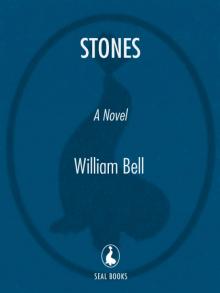 Stones
Stones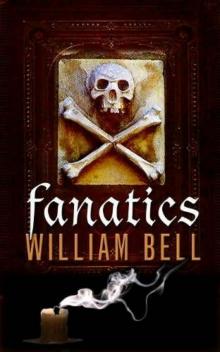 Fanatics
Fanatics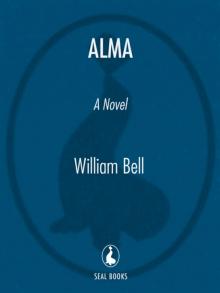 Alma
Alma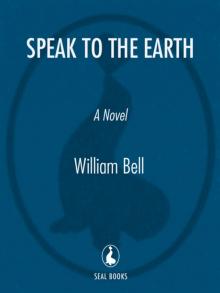 Speak to the Earth
Speak to the Earth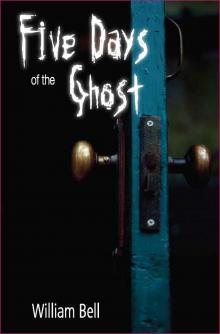 Five Days of the Ghost
Five Days of the Ghost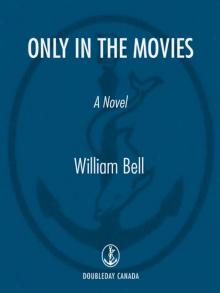 Only in the Movies
Only in the Movies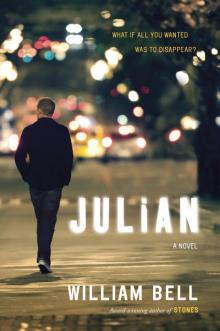 Julian
Julian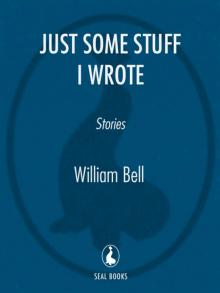 Just Some Stuff I Wrote
Just Some Stuff I Wrote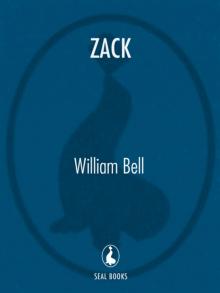 Zack
Zack Forbidden City
Forbidden City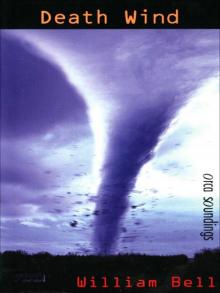 Death Wind
Death Wind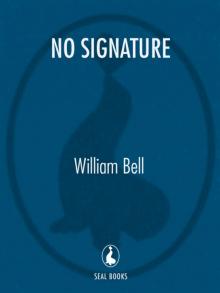 No Signature
No Signature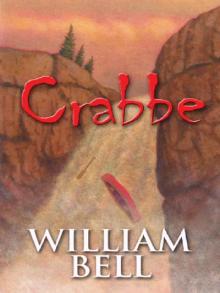 Crabbe
Crabbe